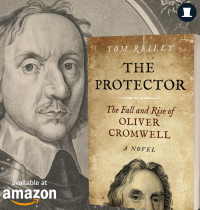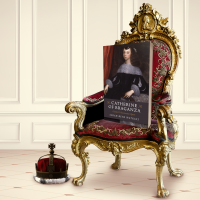
I love how easy this book is to read. Like with all books I’ve read by this publisher (Chronos), it is super easy to read and everything is explained very nicely. You can jump into this book without knowing anything and walk out with a feeling that you’ve learned something. Alyson Serena Willow Stone
Who were The Caribbean Irish?
Emigration has been the major feature of Irish life. We all know the mass migration to the United States during the famine in the nineteenth century. Eventually, their descendants made lasting contributions to their adopted country. The most well-known person is probably John Fitzgerald Kennedy, America's first Irish-Catholic president. His four grandparents were all children of famine immigrants.
The Irish Diaspora is truly unique because it was not a one-time event in history but it occurred across centuries and continents involving diverse individuals. The Caribbean Irish is about the little known fact that the Irish who went there in the seventeenth century. The British West Indies was the first region in the world where the forced displacement of Irish people on a massive scale took place. They were amongst the earliest settlers in the Caribbean. Whatever their role was, they were the backbone of the British Empire and they have always acted as a catalyst on British politics for better or worse.
I have been working as a journalist/academic researcher and Irish history is my lifelong passion. I had written books on the Irish Diaspora previously. As I have been researching on the Irish Diaspora on and off for more than twenty years, I sometimes feel like I am living my life vicariously through Irish emigrants (especially the 1950s'). But I myself actually have lived in different countries - the United States, Japan, Hong Kong, the Philippines, Thailand, Congo, France, the Netherlands, England and Ireland. Each country formed my personality and made me who I am today. Along the way, I've visited more than 150 countries (and still counting). Wherever I went, I bumped into Irish priests, nuns, teachers, NGO workers, businesspeople, scholars and journalists, and I spotted countless Irish street and place names. Every time I find an old Irish-named building or a town, I imagine how it got the name from. It is incredible how they left unerasable footsteps all across the globe.
In recent years, immigration has been a buzzword. Brexit, Syrian refugees, the rise of populism movements everywhere, etc...and globalisation produced more Third Culture Kids. Ireland is now an immigrant-receiving country. Fintan O'Toole recently wrote in the Spectator: national identity has fallen in Ireland while it has correspondingly risen in Britain. Many things change, yet some things never change. Why did the Irish leave in the first place? Where did the slave myth come from? Why don't we know much about the Irish in the Caribbean? For obvious reasons, I was absolutely intrigued by their history in the Caribbean. To research this book, I first headed to Barbados. This book is the story about them who left a lasting legacy in the tropics.
This, for me, was a fascinating read as much of what I have read in the past relating to Irish history has been focused on the country itself.....this was a valuable insight into the Irish diaspora as well as the history of the British West Indies. As this was not really my field of expertise, I had no idea that Europeans supplanted the native Amerindian populations; that the Irish were transported in their hundreds of thousands (willingly or not) before the introduction of African slaves; and that once there, there was frequent cross migration between the islands and the Amazon Basin. Garcia's narrative style makes it easy to follow this tangled web, At times it feels as if you are sitting across from her having a conversation. It is easy, after reading this, to understand how the Irish slave myth arose and it is a topic well worth exploring further. Garcia's book will start you on your journey - Melisende d'Outremer
About the author
Miki Garcia has an MA in journalism from City University London, and works as a journalist and research writer for various publications and think-tanks. She's lived and worked in Africa, Asia, Europe and the USA and is the author of Rebuilding London: Irish Migrants in Post-War Britain, History Press, 2016. Originally from London, Garcia currently lives in The Netherlands.
CLICK THE BOOK COVER TO READ TODAY

Categories:
0 comments on this article











